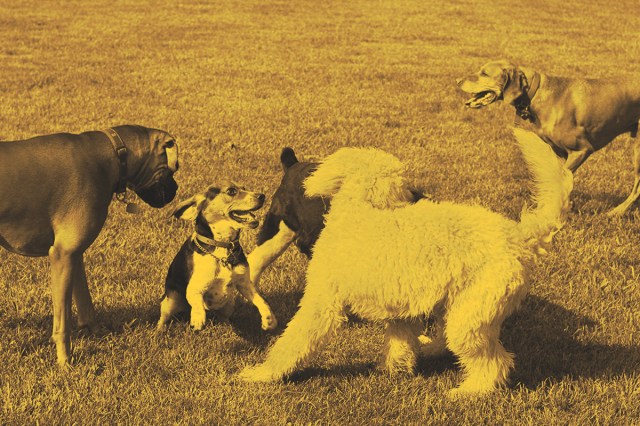
The phrase “dog-eat-dog” could work in two contexts: First, maybe you’re giving your beloved fur baby a hot dog as a well-deserved birthday treat. But second, and more recognizably, the phrase “dog-eat-dog” is a figurative idiom.
The Oxford English Dictionary (OED) defines “dog-eat-dog” as “a situation in which people are willing to harm each other in order to succeed.” It comes from the Latin idiom canis caninam non est, which translates into English as “a dog does not eat dog’s flesh.” The ancient Roman scholar Marcus Terentius Varro included the phrase in his seminal work, De Lingua Latina (On the Latin Language). In the Latin usage, the intended meaning was that even dogs have their limits and the animals wouldn’t eat a fellow dog, no matter how fierce they appear.
In 1813, “dog-eat-dog” appeared in English in a collection of political essays, but it repurposed the original Latin idiom and was used to suggest the exact opposite. The implication was that in the world of politics — and other cutthroat industries — “dogs” (people) don’t have any limits in the pursuit of unbridled success and power.
As people have continued to use the phrase, it’s become a bit mangled. Sometimes it’s heard (and written) as “doggy dog world.” While the idea of a planet full of even more dogs sounds wonderful, “doggy dog world” is an “eggcorn” — a word or phrase that’s misheard and repeated due to having similar sounds. It’s been a “dog-eat-dog world” since the days of ancient Rome.

















